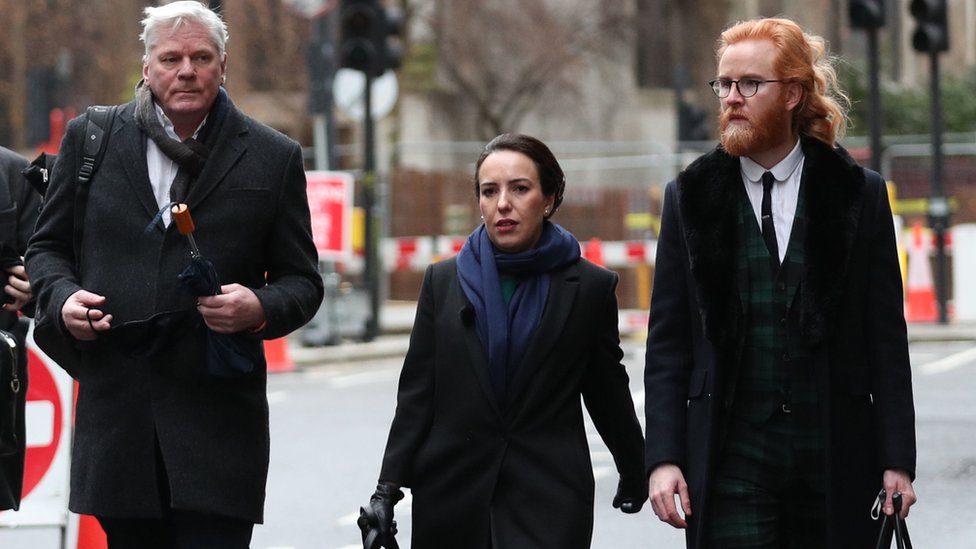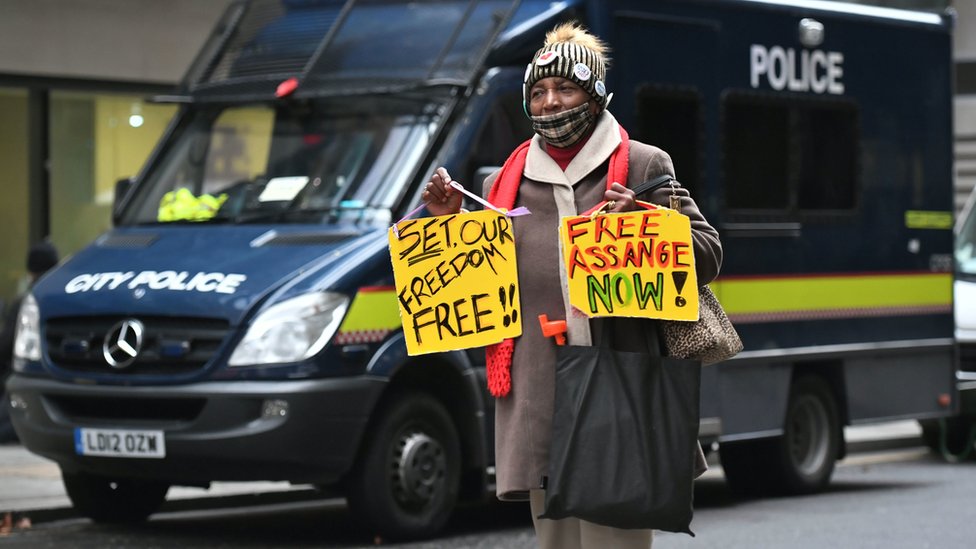Wikileaks founder extradition to US blocked by UK judge
Wikileaks founder Julian Assange cannot be extradited to the United States, a court in London has ruled.
The judge blocked the request because of concerns over Mr Assange’s mental health and risk of suicide in the US.
The 49-year-old is wanted over the publication of thousands of classified documents in 2010 and 2011.
The US claims the leaks broke the law and endangered lives. Mr Assange has fought the extradition and says the case is politically motivated.
The US authorities have 14 days in which to lodge an appeal and are expected to do so.
Mr Assange will now be taken back to Belmarsh Prison – where he is being held – and a full application for his bail will be made on Wednesday.
His lawyer Ed Fitzgerald told the court there will be evidence to show Mr Assange will not abscond..
District Judge Vanessa Baraitser ruled that while US prosecutors met the tests for Mr Assange to be extradited for trial, the US was incapable of preventing him from attempting to take his own life.
She outlined evidence of his self harm and suicidal thoughts and said: “The overall impression is of a depressed and sometimes despairing man fearful for his future.”
She said: “Faced with the conditions of near total isolation without the protective factors which limited his risk at HMP Belmarsh, I am satisfied the procedures described by the US will not prevent Mr Assange from finding a way to commit suicide and for this reason I have decided extradition would be oppressive by reason of mental harm and I order his discharge.”

Mr Assange, who wore a blue suit and green face mask in the dock, closed his eyes as the judge read out her ruling on Monday.
His fiancee Stella Moris, with whom he has two young sons, wept and was comforted by Wikileaks editor-in-chief Kristinn Hrafnsson, who sat next to her in court.
If convicted in the US, Mr Assange faces a possible penalty of up to 175 years in jail, his lawyers have said. However, the US government said the sentence was more likely to be between four and six years.
Mr Assange faces an 18-count indictment from the US government, accusing him of conspiring to hack into US military databases to acquire sensitive secret information relating to the Afghanistan and Iraq wars, which was then published on the Wikileaks website.
He says the information exposed abuses by the US military.
But US prosecutors say the leaks of classified material endangered lives, and so the US sought his extradition from the UK.
Extradition is the process under which one country can ask another to hand over a suspect to face trial.
 IMAGE COPYRIGHTPA MEDIA
IMAGE COPYRIGHTPA MEDIAFollowing the judge’s ruling, several politicians gave their reaction.
“Good news Julian Assange’s extradition has been blocked,” said Conservative MP David Davis on Twitter. “Extradition treaties should not be used for political prosecutions.”
Former shadow home secretary Diane Abbott called it an “excellent ruling”.
“Congratulations to all the dogged campaigners on Assange’s behalf,” she added.
Journalist and documentary maker John Pilger, who has been a vocal campaigner for Mr Assange, also tweeted that it was “wonderful”, adding the UK ruling was a “face-saving cover for the British to justify their disgraceful political trial of Assange on America’s behalf”.
Mr Assange was jailed for 50 weeks in May 2019 for breaching his bail conditions after going into hiding in the Ecuadorian embassy in London.
He sought refuge in the embassy for seven years from 2012 until he was arrested in April 2019.
At the time he fled to the embassy, he had been facing extradition to Sweden on allegations of sexual assault which he denied. That case was later dropped.


